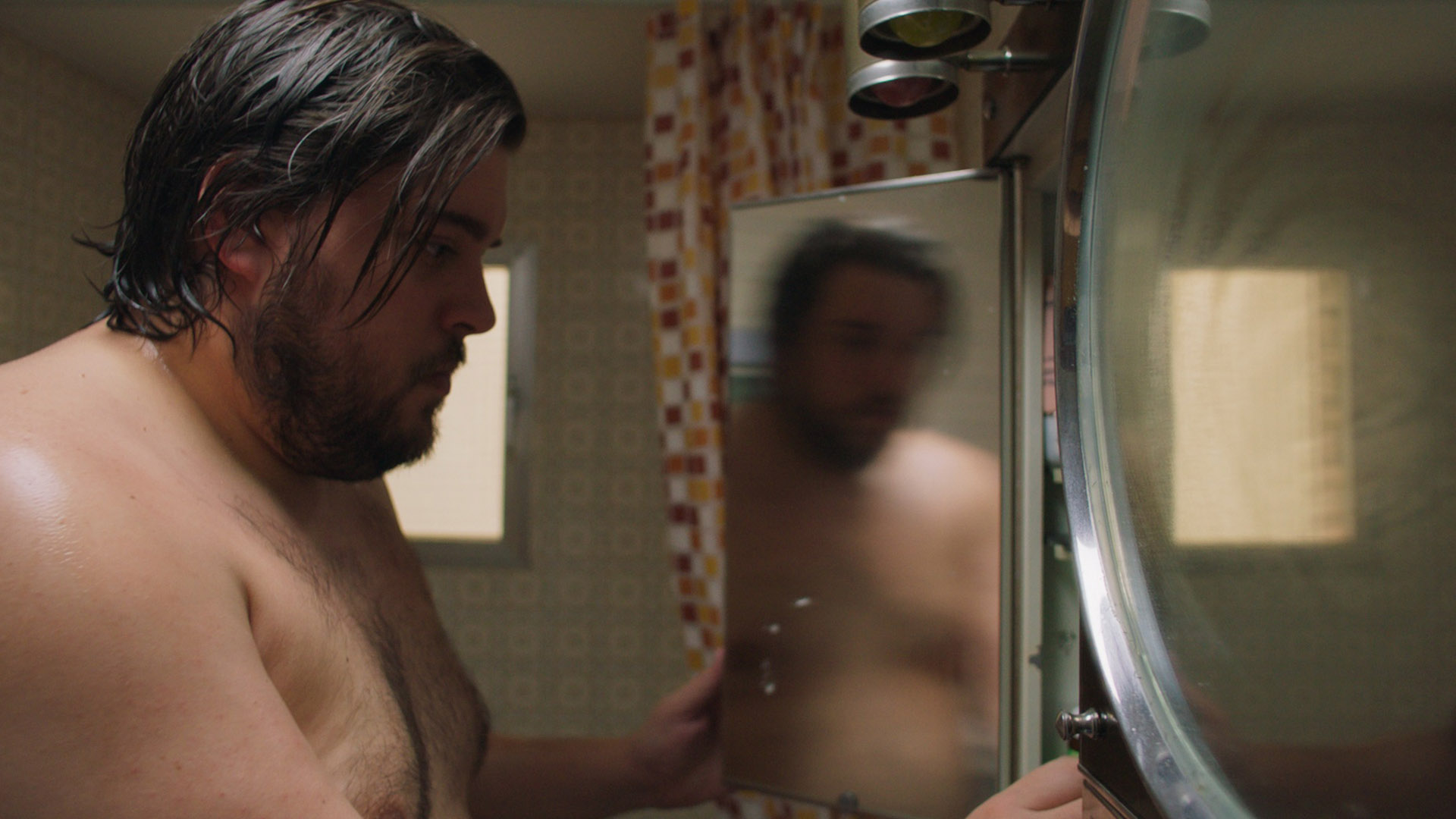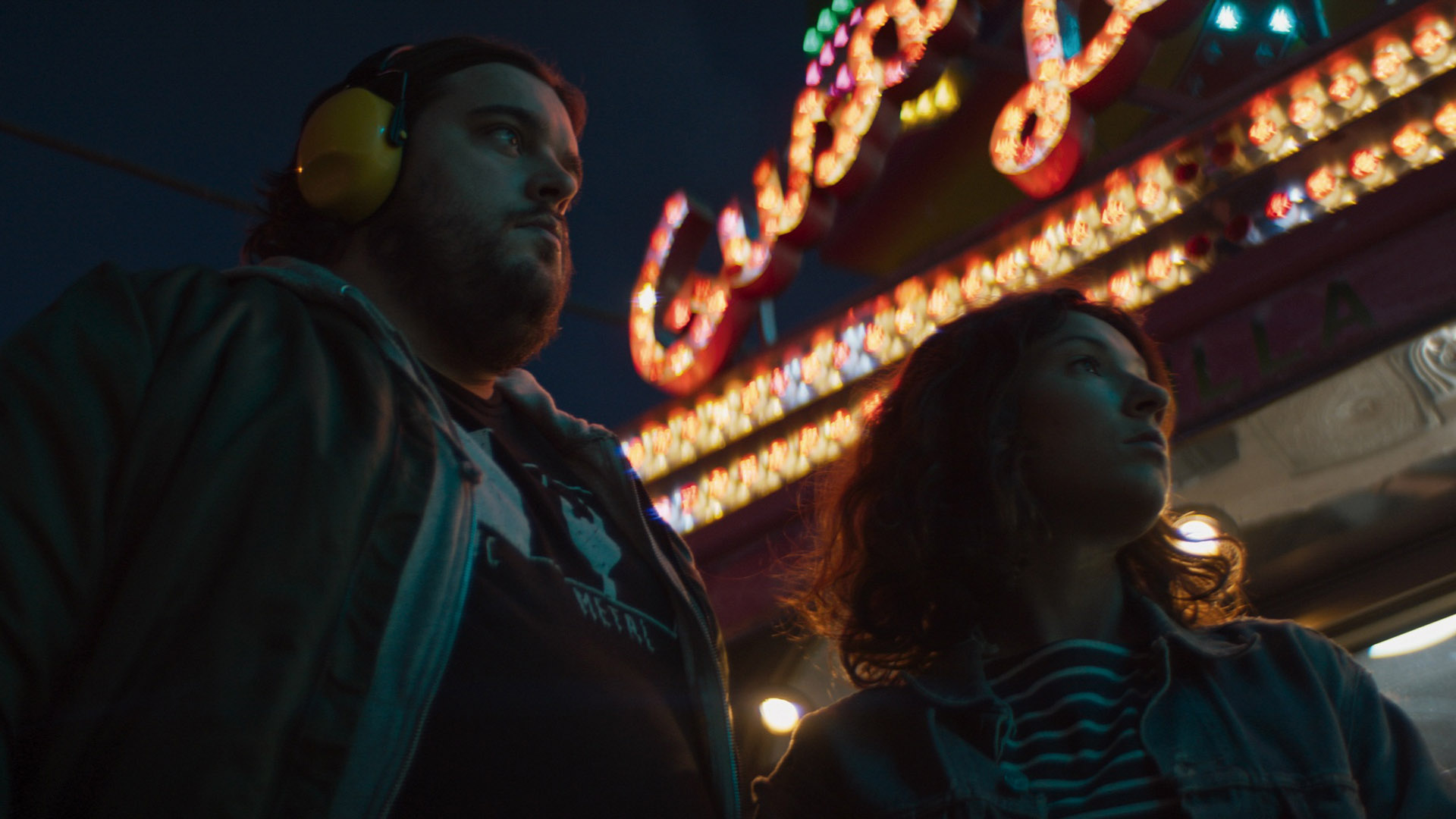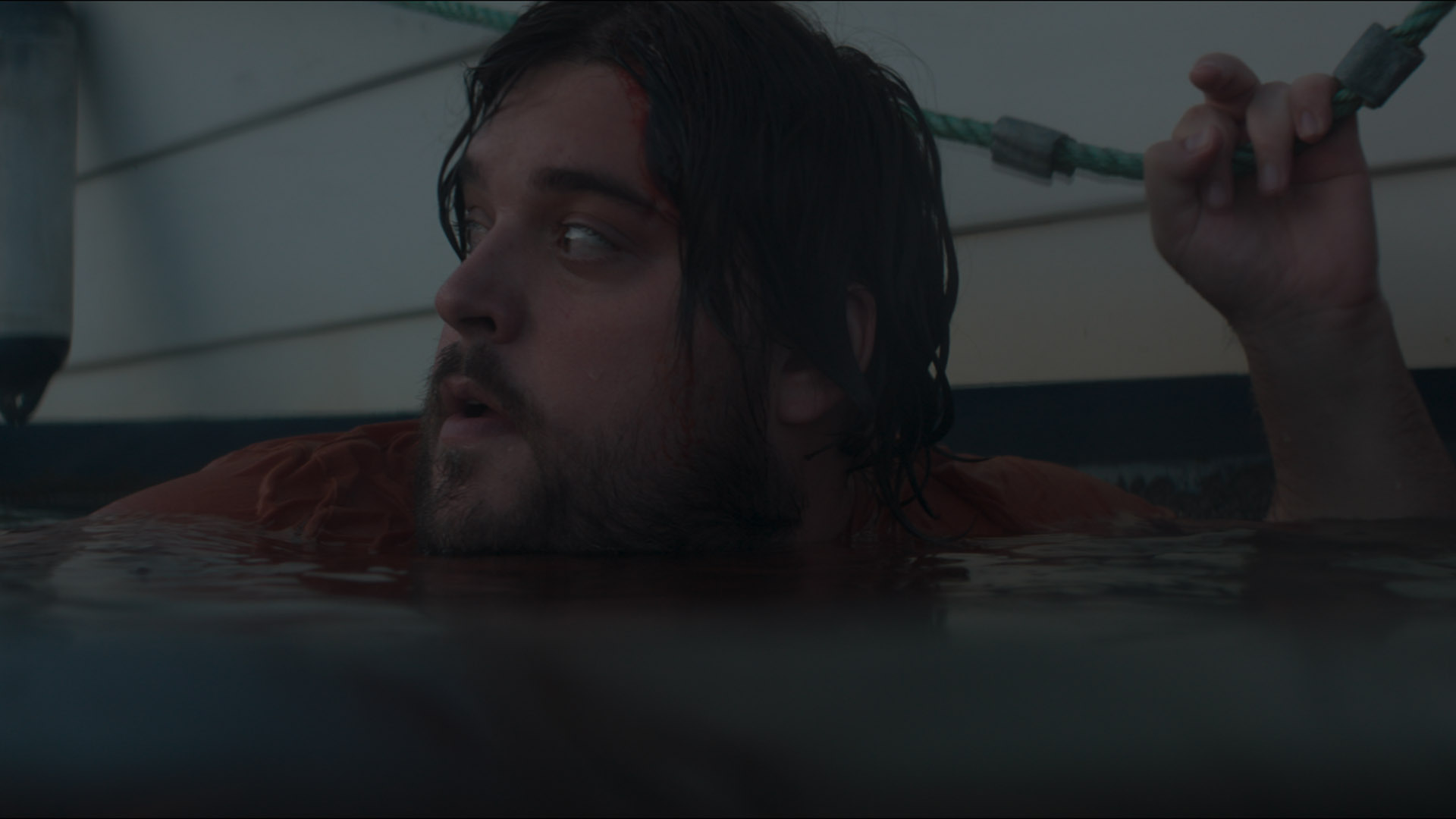
Iker Elorrieta makes an outstanding example that sometimes your own hands and a shoulder for the camera, two remarkable actors and a boom operator is enough to create unforgettably impactful scenes.
His debut "The Radio Amateur"
creates a deeply layered world of compassion and sheds light on the society remaining outside of it.
Nov 18th, Thursday 18:15, Coca-Cola Plaza
International premiere with filmmakers
„The Radio Amateur” creates a captivating portrait of fragility through Nikolas, whose entity resembles a glass that can carry so much when balanced right and yet, with a blink of an eye, shatter into a thousand pieces. How did the story start to grow in your mind and what kind of layers were essential for building its core?
Yes, we are all humans and we all have a certain fragility inside us that can be broken if something or someone presses the wrong button. I think this is a very universal approach. As a filmmaker, I’ve been interested in human behaviour for years, and I truly believe that people who are inside of the autistic spectrum are very special humans. I wanted to create a magnetic and brave character with a beautiful inner world, a dreamer who wants to demonstrate he is capable of being part of the group, but very fragile at the same time due to his condition.
I am very close to a family who have a neurodivergent son, I have known them since before he was born. His mother is a very close friend of mine and we’ve always spoken about her concern for her son's future once she would be gone.
The unseen layers are very important to hold the film. I reflected a lot about the past of the characters. Without this, the loneliness and silent moments of Nikolas and Ane would not have been sustained.
At the very beginning of the writing process, one of the main layers was “The incapacity of the sailors to be part of the society” or its reverse. How some of them feel like outsiders being on the mainland and how they can’t have a typical life with their families. I used this as a very strong concept in order to create Nikolas father’s past story, and how Nikolas could feel throughout the film.
The blame concerning Niko´s parents' relationship, reflected by his shoulders body language and Ane´s recent past, reflected in the moments of solitude, was something I talked about a lot with the actors. I was clear that it was more important for them to know where they came from than what was written on the lines of the script. I had the freedom to maintain the mystery, something that I love in films as a narrative tool.

The feeling of belonging is one of the key elements of „The Radio Amateur”. There is a very compelling collision between Nikolas and Ane, who surround this matter in their own way. On the one hand is Nikolas who doesn't belong yet he feels that he should and on the other we find Ane who belongs, yet never truly feels like it. How do you define belonging and its complex necessity?
As an individual, Nikolas is very fragile in this real world because he couldn’t acquire knowledge in the process of obtaining experience through his own actions and through his experience of social relationships. The only contact with others for years was always through the VHF radio at home, listening, but never interacting.
The sense of belonging is one of the most important human needs. Belonging affects the perception of others and drives positive emotions like happiness, calm or gladness. And, in the same way, the feeling of not belonging can lead to sadness, loneliness and anxiety.
From this point I shaped the counterpoint character of Ane, who has belonged to the harbor people for far too long and has a very close relationship with all of the sailors, but she has wanted to get out of there after a personal tragedy. She’s been constantly seeking her moments of solitude out of the group but suddenly a mysterious boy appears in her life and activates all her emotions in a brutal way for a few days. I thought that was a common situation for many of us, and could be a very complex and interesting character for the film.
Giving the opportunity to be capable of something and then belonging was something that was in my mind since the beginning and had a very personal approach for me as a novel filmmaker.
„The Radio Amateur” is so much more than a love story. It is a story about love that runs through veins filled with shared blood, about love that grows out of strong friendships and kindness and most of all about love that each one must grow within themselves. We see that love comes and grows naturally, yet „The Radio Amateur” portrays behavior, where instead of love, there is a lack of empathy. What in your eyes causes this lack?
Love, empathy, or the lack of it, are themes that have haunted my head during the past years. I don’t know why, but I’ve seen a lot of hate between people around the world. We are living in a very strange manner with these new ways of socializing. In my opinion, the social networks are the least sociable there can be, the algorithms exclude the other to give way to the same. We are increasingly unable to evolve as humans, as they are depriving us of what could enrich us the most. The Korean philosopher Byung-Chul Han talks about this in his book “The expulsion of the other”.
I wanted to create a film with real moments lived between two souls with a strong energy connection, a real friendship that could be more than that, but the lack of real empathy of Ane would destroy. One of the topics about the people who are in the spectrum is that they are not empathic people, but I don’t agree on this. What can be less emphatic than a neurotypical trying to make a neurodivergent behave like them? Ane´s behaviour is a reflection of part of our society.
On the other hand we have Lupo and his friends, they represent the most radical part of the society: hate, revenge and jealousy. I tried to make a criticism - I don’t have much hope in the human being and often I can’t understand why some of us behave with such hatred with our seeds. It’s something that we can see everyday, everywhere.
I think that the only way to save all of us is love and real empathy, accept the other as the other and support him as he is. It does not matter how many friends you have or how often you socialize with them, if the importance and need to connect with others is not recognized.
Anyway, all of these thoughts are just feelings that surrounded me. Each film has its own sort of language and it’s not easy to try to reflect the same things in words.

I cannot help but to ask about the working process that led to this absorbing intimacy where the surrounding environment spoke volumes about the thoughts left unsaid. „The Radio Amateur” does not take the viewer on a journey with Nikolas. Instead the viewer is immersed in the characters. How did you and the actors achieve this dynamic?
I was lucky to have actors who trusted me and were open to experiment, letting themselves go, and feeling what was happening. I’ve been working with a camera for many years and I have always thought about how the device and the people involved should not affect the work of the cast. So I decided to operate the camera myself, it would be in my hand or my shoulder, very close to the actors and giving quick instructions in every scene, every little moment. Not giving all the information and not rehearsing too much is a method that I also used a lot.
In many of the scenes it was only the cast, the boom operator and me on set, nobody else. I struggled a lot and sometimes I didn't have a good time. It is a way of working that people on a shoot are not used to, and there were difficult moments for me. But that intimacy between us and the lack of crew on set was the key for me to obtain the results I wanted.
How did „The Radio Amateur” find its way to PÖFF and what is in your opinion most interesting about the festival?
I am fascinated that we are part of 25th PÖFF with our first feature film. My partner and also producer of the film introduced me to the festival a few years ago, as he knows that I’m very interested in Northern European cinema and it has some influence on my work.
I think the festival has a fresh and well-looking image, it has a good reputation for having very good films programming. The fact that it is recognized by FIAPF and accredited to organize an international competition was something important, so I think it´s a huge honor for all of us to be part of PÖFF.
I´m happy with the fact that what I was telling in the film has reached other people from different parts of the world and different cultures. It is my first time in Estonia and I´m very excited to make our international premiere here.